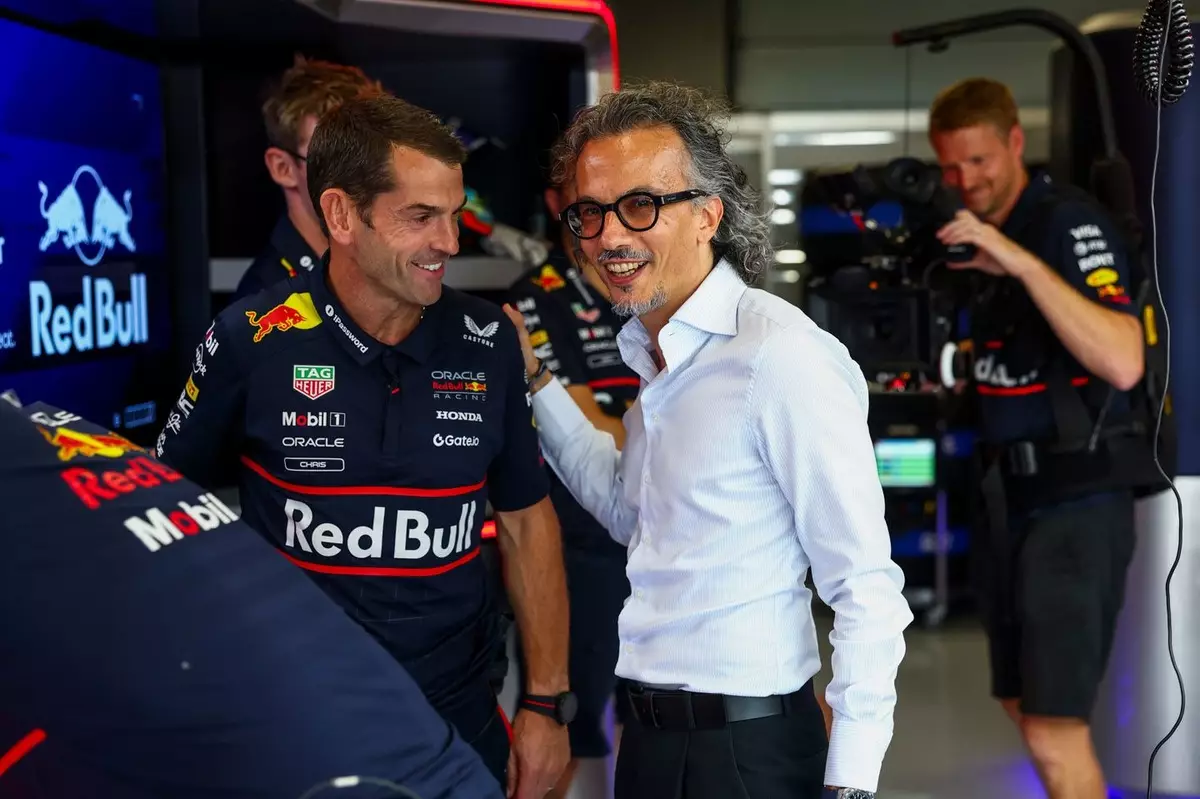In the high-stakes universe of Formula 1, changes at the top can signal either turmoil or a period of reinvigoration. Recently, Red Bull Racing stepped into a new era with the appointment of Laurent Mekies as team principal and CEO, marking a deliberate shift to fresh leadership after two decades of Christian Horner’s stewardship. This move, while audacious, demonstrates a bold belief in strategic evolution to reclaim and sustain dominance. As Red Bull navigates a period marked by fluctuating performance and internal restructuring, Mekies’ arrival is more than just a leadership change—it’s an indication of the company’s intent to rethink, innovate, and realign with long-term ambitions.
Horner’s legacy is undeniable; his role in transforming a team rooted in the remnants of Jaguar into a powerhouse with multiple championships is monumental. However, the sport’s rapidly evolving technological landscape—including in-house powertrain development and regulatory complexities—necessitates fresh perspectives. Mekies, with his diverse background and proven leadership, appears poised to merge the team’s formidable racing DNA with innovative management strategies, laying a foundation for sustained excellence.
Leadership that Blends Experience and Empathy
What distinguishes Mekies from the typical racing executive is his demonstrable people-centric approach. Alan Permane’s praise for Mekies highlights a critical trait: his exceptional interpersonal skills paired with racing acumen. In a sport where high-pressure decisions, internal cohesion, and team morale are pivotal, leadership qualities that prioritize people often translate into better performance on the track.
Permane’s insight underscores the importance of continuity amidst change. His confidence in Mekies’ ability stems not only from past collaboration but from a recognition that values like empathy, clarity, and vision are essential to steering a complex operation like Red Bull. When a team is transitioning, trust in the leader’s capacity to unify diverse talents is vital. Permane’s remarks suggest that Mekies possesses this rare balance of tactical expertise and emotional intelligence—a crucial combination for steering the team through uncertain times.
Synergy and Collaboration: Building the Future Together
A significant aspect of the new regime is the seamless integration of Racing Bulls and Red Bull Racing. The synergies forged through shared development efforts—particularly with power units and technical components—are vital now more than ever. As Racing Bulls prepares to move to in-house engines in 2026, the collaborative framework is poised to become even more vital.
Permane’s acknowledgment of the strong working relationship between Mekies and Christian Horner indicates that the foundational alliances remain intact. It hints at a well-orchestrated transition, where the culinary craftsmanship of racing excellence is passed with care and precision. The proximity of operations between Faenza and Milton Keynes, facilitated by skilled management, ensures continuity and stability. This strategic closeness enables rapid communication, innovation sharing, and the agility needed to adapt swiftly to regulatory shifts or technical innovations.
Critical Reflection: Opportunities and Challenges Ahead
Despite the optimism, it would be naive to dismiss the challenges that lie ahead. The departure of Horner, while an opportunity for renewal, also leaves a void that will test Mekies’ leadership. The task of maintaining Red Bull’s competitive edge amid changing regulations and internal restructuring is a formidable one. Moreover, with Max Verstappen’s future uncertain, the team’s stability and long-term plans hinge on complex variables beyond technical prowess—personal, strategic, and cultural factors that a new leader must master.
Furthermore, Permane’s background reveals a seasoned veteran who has faced disappointments, notably his recent departure from Alpine. Such experiences serve as invaluable lessons, equipping him with resilience and strategic thinking. His involvement signifies that Red Bull values a balanced approach: experience complemented by a fresh, innovative vision. Yet, the success of this ambitious transformation depends heavily on Mekies’ ability to lead with clarity, inspire confidence, and foster a culture that prizes continuous growth.
Final Reflections: Embracing Evolution with Confidence
In the high-octane world of Formula 1, leadership is everything. Red Bull’s decision to entrust their future to Laurent Mekies reflects a nuanced understanding that innovation and stability must go hand in hand. While the shadows of past dominance linger, the sport’s relentless pursuit of perfection demands agility, foresight, and unwavering commitment. If Mekies can leverage his strengths, nurture his team, and maintain a strategic focus amid inevitable upheaval, Red Bull is well-positioned not just to recapture its former glory but to reinvent itself as the sport’s most dynamic and forward-thinking contender. Success in F1 is rarely accidental—this bold leadership move suggests Red Bull’s readiness to write a new chapter of supremacy, driven by a leadership aligned with the sport’s future.

